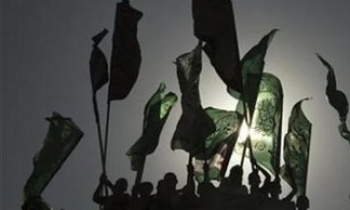"Come on, don't be shy," mumbles an ageing C-list Bollywood actor to a girl on a grainy video shown on an Indian news channel last year. "I want to make love to you."
This, most say, marked the nadir of sting journalism in India - an out of work actor had been seemingly entrapped by a journalist posing as a sweet talking young aspiring actress.
The channel was unfazed - viewership leapt three-fold for a few days. It insisted that such stings had a salutary effect on unfaithful men. Women viewers were writing in saying their skittish husbands were returning from work in time these days.
It was a far cry from five years ago when people all around India applauded a start-up news and views site, Tehelka.com, for exposing corruption in weapons deals and showing politicians and army officers taking bribes from journalists posing as middlemen.
Now, with 40-odd news channels vying for viewership in India's raucous media scrum and cheap secret cameras flooding the grey market, sting operations have become essential fodder in the news mix.
'Sleaze and slime'
The past year has been a never-ending sting season on television news.
Parliamentarians have been caught on camera seeking cash for questions and their share of constituency funds; officials have been caught taking bribes; doctors have been filmed selling infants from hospitals; clerics shown issuing fatwas for money. A policeman was caught demanding bribes to hand over the body of a man to his family.
All this and more in the public interest, or the "greater common good" as the channels never tire of reminding viewers.
But concerns are already being raised about stings, which Tehelka editor Tarun Tejpal calls the "greatest tool of journalistic investigation and exposure".
Not surprisingly, politicians and authorities who have been at the receiving end of the stings are demanding some sort of legislation to rein in the news channels.
Some journalists say stings are blurring the line between journalism and entrapment, between public interest and voyeurism.
Now the Supreme Court has raised concerns over freelance sting operators hawking their 'exposés' to the highest bidder.
"Whether it [sting operation] is in public interest or to make money will have to be examined one day," the judges said.
That observation has annoyed the country's most well-known journalist-sting operator, Aniruddha Bahal. He started out with the weapons corruption and cricket match fixing stories with Tehelka and now runs an independent production company making programmes - and sometimes stings - for news channels.
"There's no thriving freelance sting journalism industry in India as the judges seem to think. Stings are serious business and not everybody has the guts to do it or telecast it.
"The few people who do work on stings outside the news channels are journalists. Do you mean freelance journalists can't do stings?" asks Mr Bahal.
Outsourcing
Star News, a Hindi news channel part-owned by Rupert Murdoch, for example, does on occasion 'outsource' sting operations - Mr Bahal's company has produced some stories for them as have curiously named companies like Detective Intelligence Guild and Bag Films, whose website calls itself a "leading integrated media and entertainment company run by media professionals".
"We do engage outsiders who work with us to work on stories. But all these outsiders are journalists, not people doing sting operations for the highest bidder. So what is wrong?" asks Star News editorial chief Uday Shankar.
At the same time there has been a proliferation of crime news channels and tabloid TV that has led to what critics see as a cottage industry of sleaze and slime.
One channel rigged up a husband reportedly beaten by his spouse with secret cameras and sent him back home to show how his wife thrashed him.
Last week, a man was held in Punjab on suspicion of trying to blackmail a local mayor by sending women to him and secretly taking photos of him in compromising positions with the women and then threatening to sell the photos to a local news channel.
The cases indicate that not many people appear to have clear ideas about what is or is not acceptable in sting journalism.
'Appalling judgement'
What seems to have provoked the Supreme Court judges to deplore alleged 'sting auctions' is a recent news channel report in which the audience could hear a taped telephone conversation between what the channel said was a junior federal minister and a man under trial in a north Indian jail. In the conversation, the minister is apparently pushing the criminal to influence a land dispute.
Investigations soon found that the voice on that tape was not the minister's. The news channel said it had been fed a lemon - the recordings were put on a CD and supplied to the channel by the local police, it said.
Defenders of sting journalism say that while this case was an appalling editorial judgement, it should not provide ammunition to muzzle those carrying out properly researched and credible sting operations that are in the public interest.
Aniruddha Bahal says that when he was quizzed by a parliamentary committee on his recent cash-for-questions sting, one MP told him he should have picked an equal number of MPs from the mainline political parties before venturing out.
"But that would have made it a fishing expedition which is essentially against the very ethic of sting - you sting a person only when you have some information or evidence that he is prone to a corrupt act. And how can you do a journalistic investigation based on quotas like everything else in India?"
The truth, Tarun Tejpal, says is that "there may be bad, motivated and indifferent stings - but that is no different from the rest of journalism".
The truth, again, he says is "if you held a referendum in the country, 90% if not 99%, would back the sting."
In a country where public confidence in bureaucracy, police and judiciary is possibly at an all time low, this may well be true.
But India is a country where victims of defamation have slim hopes of any redress because of its painfully slow justice system. For that reason critics say, the news channels do have a moral duty to be more responsible carrying out a sting, no matter how big or small the target of the sting is.









